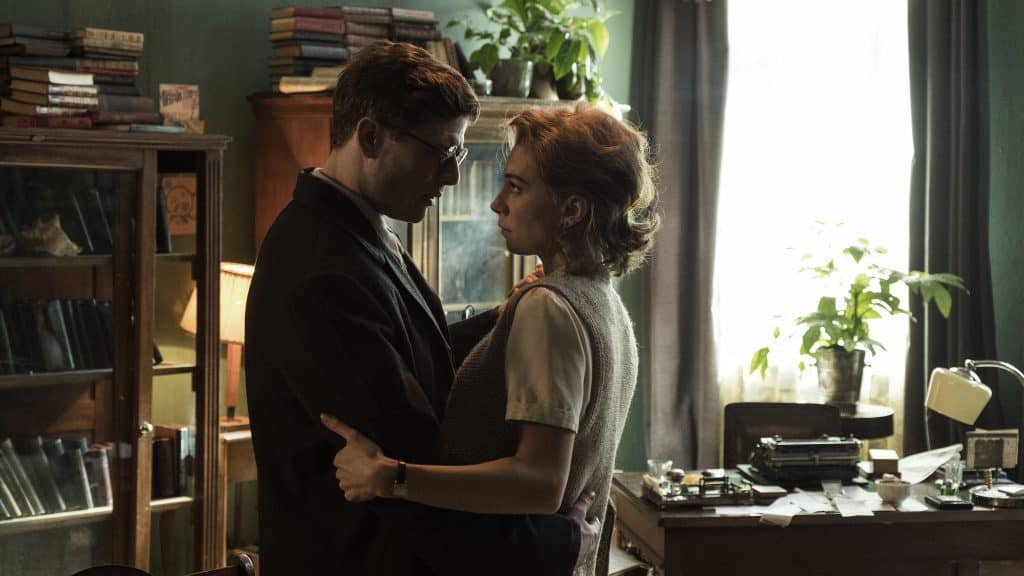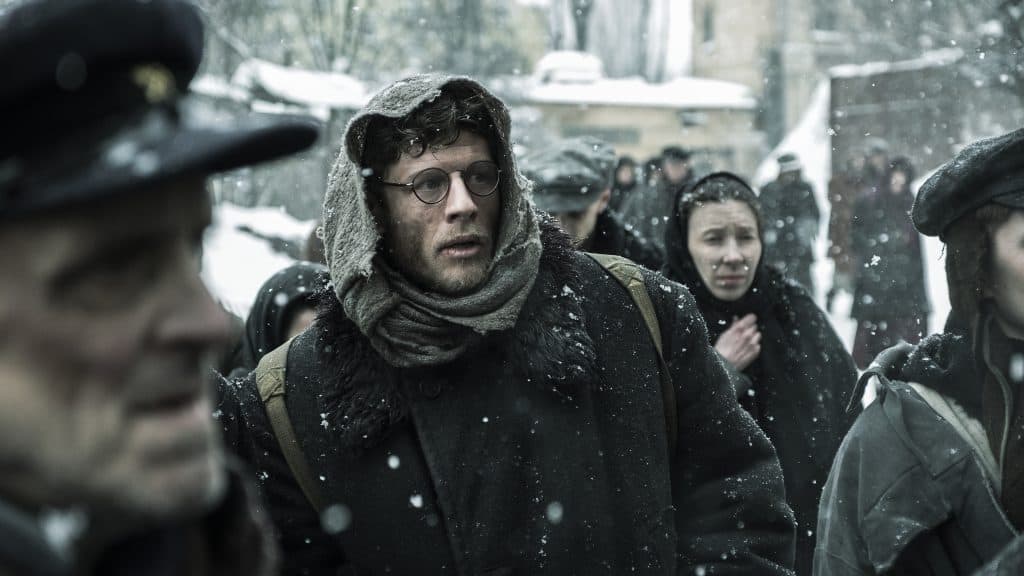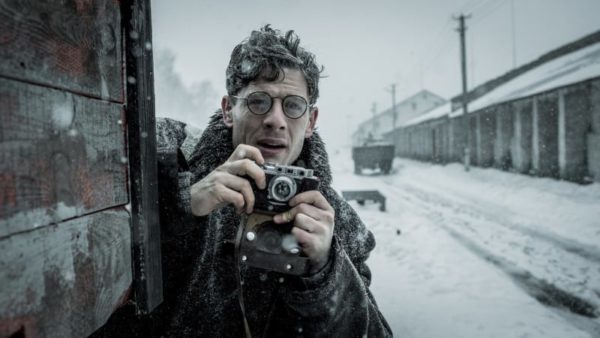Save me from Mr Jones
In 2017 Agnieszka Holland presented Pokot (Spoor) in the Berlinale competition. Based on Nobel laureate Olga Tokarczuk’s book “Drive your plough over the bones of the dead!” it was a mess. However, it was, in part, messy in interesting ways. Even though I didn’t feel that the film worked on any level, I left the screening, pondering over some of the elements in the film. There was nothing there that prepared me for the 2019 competition entry, Mr Jones, that covers the important and criminally neglected topic of the man-made famine in Ukraine that starved millions of people to death, called Holodomor.
Whereas Pokot certainly had its weird moments that made me shake my head in disbelief, Mr Jones is a completely different animal, and as we know, some animals are more equal than others. 1The version screened at Berlinale clocked in at 141 minutes, whereas the version later released in the US was trimmed to 119 minutes.

One of many strange choices in the film is to include George Orwell as a framing device. The first character we meet is, in fact, Orwell (Joseph Mawle), talking about how to find the truth in a mess of lies. Granted, it might be the case that Animal Farm arose out of the writer’s disappointment with Stalin’s policies and that Gareth Jones was an influence on Orwell. It’s also a fact that “Mr Jones” are the first words in Animal Farm, but the relationship is still a strained one.
The writer of Mr Jones
First-time writer Andrea Chalupa clearly felt strongly about the subject but didn’t manage to form a cohesive screenplay. She actually wrote a book called Orwell and the Refugees: The untold story about Animal Farm. Her Grandfather was tortured during the Holodomor but survived and lived to tell his tale, so the story has obvious personal connotations for the writer. A book I haven’t read. However heartfelt the topic might be, killing a few darlings might have helped the script.
Holodomor for dummies
The first part, set in Moscow, wallows in clichés with ex-pat reporters, including NYT writer Walter Duranty (Peter Sarsgaard on autopilot), living a life of debauchery. Duranty is now infamous for denouncing the famine in Ukraine and being one of Stalin’s defenders. With his status as a Pulitzer Prize winner, his influence was massive. However, it’s in the section set in Ukraine where the film really sinks into tastelessness, which is quite atypical for the director. The depiction of starvation has its moment of apt horror, but mostly, it is overwrought and distancing at the same time. A children’s choir is particularly distasteful.

In the final section of the film, Gareth Jones is eager to talk about the horrors that he has seen. Duranty, who mostly wants to secure his posh position in Moscow, becomes his arch-enemy. Again, this is a section rife with clichés that wouldn’t be out of place in a Spielberg film. And then Orwell appears once again. Holland also tried to keep things topical at the press conference at the Berlinale when she said that “Stalin made Russia great again”—one of the all-too-many attempts to link current politics to previous horrors.
Anything that sheds light on this dark time in history is welcome. However, I don’t feel that this is the film that would accomplish that. I won’t even include a trailer in this review. Instead, here is a clip where Anne Applebaum recounts the real tale. It’s also told in her book Red Famine: Stalin’s War on Ukraine. I suggest reading that book instead.

